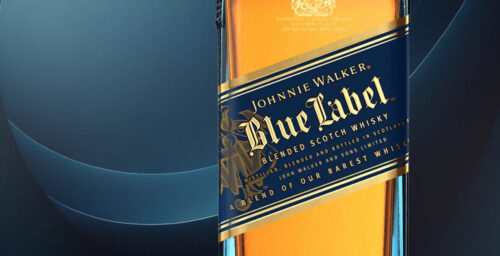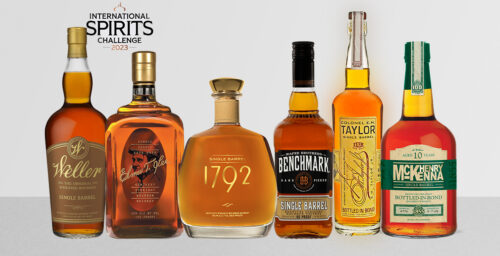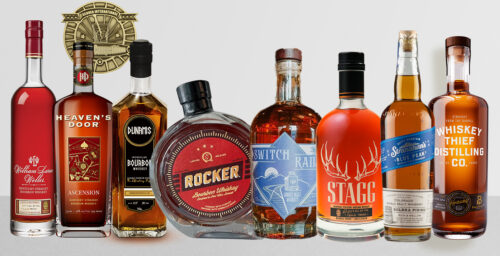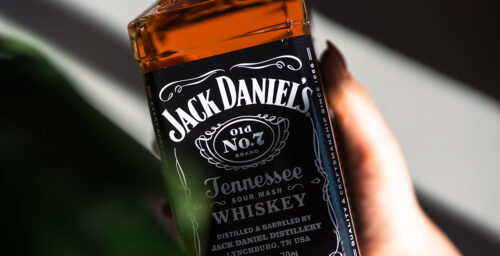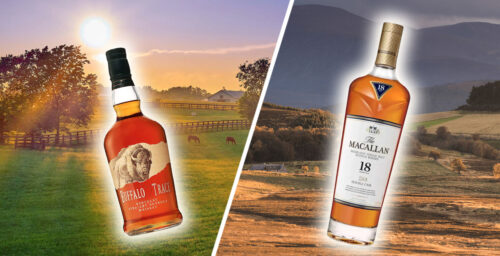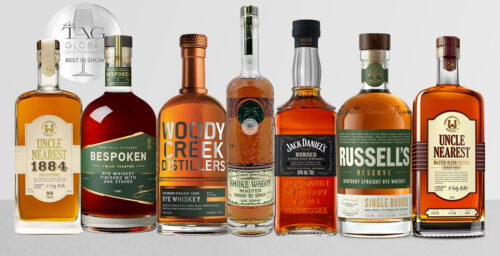Editor’s Note: The George Dickel PR team invited me down to the Cascade Hollow distillery last year in Tennessee to meet head distiller and general manager Nicole Austin. Though all travel expenses were covered for this trip by the distillery’s parent company Diageo, editorial control of this interview remains in the hands of The Whiskey Wash.
The George Dickel distillery, known also as Cascade Hollow Distilling Co., is noted for producing a namesake whiskey which is that other Tennessee whisky brand you think about usually besides one called Jack. There’s a storied history to this brand, having been established by Dickel in the 1870s. It went through a lot of twists and turns, like so many other American whiskey labels, in the subsequent years, particularly during Prohibition and beyond.
Step forward into more recent times, and spirits giant Diageo eventually came to own the brand and the Cascade Hollow distillery it was produced at. It was under the helm of a distilling team for a number of years during the 2000s, but after the departure of those doing this, distiller Nicole Austin was tapped from outside the company to take on the role.
At this time of this visit and subsequent interview, the new Dickel Bottled in Bond Tennessee Whisky was just coming to market. This being Austin’s first whiskey under Dickel, the price point, the age and the quality of the product itself got her noted marks as having a very solid start there. Note that this interview has been edited for clarity and brevity.
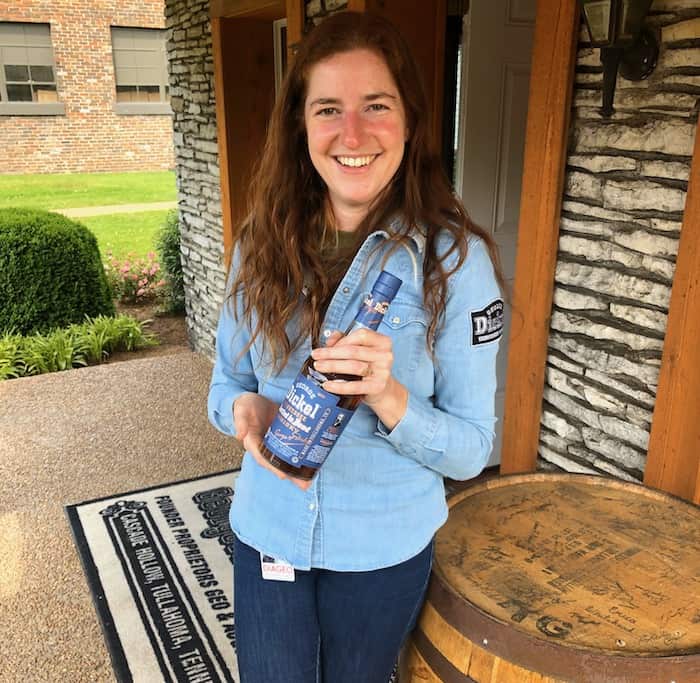
The Whiskey Wash (TWW): Tell us first a little bit about your background in distilling. What interested you in being a distiller, and how did you come to be into the space?
Nicole Austin: I went to school for chemical engineering, which is probably the most appropriate degree you can get as a distiller. But I didn’t have any kind of early inspiration that this is what I wanted to do. I actually had no idea what I wanted to do, so I just sort of picked the hardest one to see if could I get through it. And I also had a guidance counselor who, maybe, implied to me that I wasn’t quite disciplined enough to get through chemical engineering. So I was sort of like, “I’ll show you,” you know? Quite rebellious at that age. So that’s what I was at school for.
Upon graduation, I realized I better figure out what job I wanted to do. Whiskey making hadn’t even occurred to me at that time. I wasn’t even aware that that really was a job I could do. I didn’t want to go for oil and gas, or pharmaceutical, or those kind of typical chem-y industries, because they didn’t really feel satisfying to me or really serve any kind of bigger purpose.
So I went for environmental engineering and thought I was going to be like the next Erin Brockovich, and it was really sexy. My first projects were front to back retrofits of a wastewater treatment plant in Queens. The level of glamor was maybe not quite as high as I had imagined. I was like standing hip-deep in a New York City sewer questioning a lot about my life choices.
[Later] I was in a bar – you know, where all good ideas come to you – and I had just been poured a glass of whiskey from this amazing bartender who was really passionate about the whiskey, and was telling me about it, and mentioned that it was distilled. And I just had one of those like, “Holy fuck. That’s literally what I went to school for.” Like, “Why did nobody tell me this is a job that you can do?” I mean, it was just instant to me. It was obvious that that’s what I was meant to do.
I always had a deep, burning desire to be like creative and contribute culturally, and I just had no talent at all. I couldn’t draw. I wasn’t musical. I can’t dance to save my life. What I’m good at is math and science. And to me, this was the answer for how to be creative and artistic if all you’re good at is math. So for me, it was obvious that this was what I wanted to do.
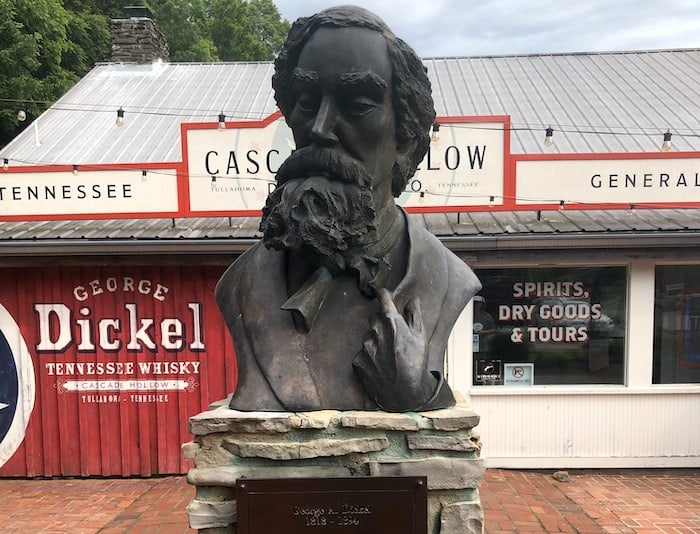
TWW: How did you make the transition into being a distiller?
Austin: A combination of some sort of light stalking and many, many perky emails. I spent a couple of years, actually, just emailing everyone that I could think of that might give me a job and shaking hands all over the place. But I didn’t have the right kind of degree to get hired in the UK at that time. And most of the American whiskey brands, you had to be married into the family, or you were never going to get that senior. And craft was only just getting going when I was getting into the industry. So, essentially, I spent two years trying to get in, and then I got a little frustrated.
This was right when Kings County was the first distillery to be licensed in New York since prohibition, and I saw a little blurb about it. And I basically showed up at their front door and was like, “I am going to work here now. You’re welcome.” And the two guys that founded it were basically like, “Great, because we have no idea what we’re doing, so welcome, welcome. And we don’t have any money. We can’t pay you.” I said, “That’s no problem. I’d rather have equity anyway.”
And that’s how I got in. It was June of 2010 is when I joined the company, so it’s two months after they got their license. I christened myself the master blender, even though we actually had zero whiskey in barrels at that moment, because why not?
TWW: How long were you there for?
Austin: I was there until 2016, and also did a lot of consulting. I kept my day job for the first few years, and then when I was ready to quit, I met Dave Pickerell. He came around as kind of a one-man consulting company, and offered to make it a two-man consulting company with me. That’s what allowed me to quit my job and be a distiller full-time, so I did.
I then worked with him for almost two years consulting and helped a whole bunch of clients all over the U.S. Then I went off and did some consulting on my own as Kings County grew, and I really needed to be there more.
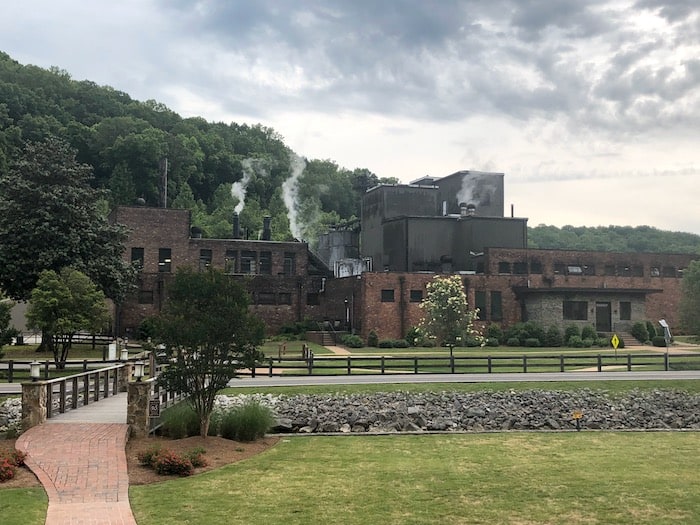
Then it was through that I did some work for William Grant, and they offered me an opportunity to move to Ireland. They offered me the role of commissioning engineer for the new grain distillery that they were building at Tullamore. I mean, that was just an incredible opportunity. I did not want to say no to that, but they basically said I had to move in less than two months. So handed the reigns over and got on a plane, and moved to Ireland in 2016. And that’s where I was when I got the call about the Dickel job.
TWW: What was your initial reaction?
Austin: My initial reaction was I thought they were calling me to help them find someone for the job. I didn’t realize that they were trying to recruit me. So I started rattling off names of all these other people in the industry that I knew and thought were amazing until the recruiter stopped me and said like, “No, no. We’re trying to hire you,” and I was a little bit surprised.
TWW: When did you start at Dickel?
Austin: March of 2018.
TWW: Describe day one walking on the grounds there.
Austin: Man. I mean, I love the distillery. It feels like probably Goldilocks. It felt like I had spent all that time at Kings County. It was amazing, but it was too small to ever really make that kind of impact on the whole industry that I really wanted to make. Then I went off to Tullamore, and it was amazing, but it was too big. I was only ever going to be a cog in a machine and didn’t really get to be creative, and it was very corporate. And this felt like just right.
It’s sophisticated and big enough to really produce some of the highest quality whiskey in the industry, but it was small enough that I could really be creative and crafty and do what I wanted to do and pursue my passion. It felt like just right.
TWW: Dickel has this rather large Tennessee whiskey inventory. What went into your head about what it was going to take to manage that to make a good and proper product?
Austin: God, I was so excited. I mean, initially I wasn’t daunted at all, even though I definitely should have been, because there’s a fair bit of complexity here. But I was just so excited. I was like a kid in a candy store that I had all this old liquid that I had never had access to before to make whiskey with.
And I think you can see that in my first product, in the Bottled in Bond. Putting 13-year-old liquid in the bottled in bond category that only has to be four years old is clearly what happens when you cut me loose in these warehouses and find all this beautiful liquid. I’m trying to take a little more thoughtful path about it now.
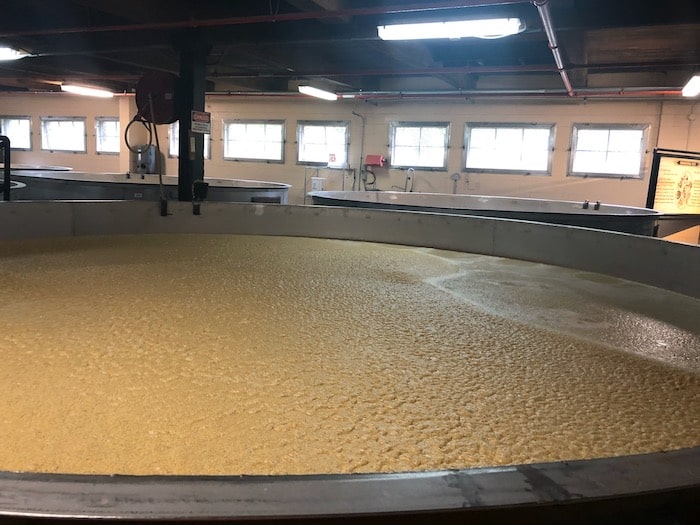
TWW: With Bottled in Bond, you’ve got this 13-year-old whiskey that has been put out there at a competitive price point for bottled in bond, especially at that age. What was the thought process for you behind wanting to see it done at that particular price?
Austin: The first whiskey that I put out under the Dickel name, was to be set the stage about what, I guess, my reign would be about. And authenticity, quality, transparency, these are all values that I hold really, really close and Bottled in Bond is the best expression of that in American whiskey.
This 13-year-old liquid, this fall 2005 liquid, is the liquid that I really fell in love with. So it was going to be older than I had expected or anticipated, and so I still wanted to make a statement that Dickel is about accessibility and that American whiskey, in general, is supposed to be about affordable luxury.
I didn’t want my first whiskey to sit on people’s shelves and get dusty. I wanted people to drink it and get to know me in the kind of whiskey that I love and get to know this liquid, because that’s what’s so special about it. But if you make it too expensive, no one’s ever going to crack it. So that was the thought process around kind of how this liquid came to be what it is.
TWW: Thinking about what’s in the short-term and the long-term, what kind of releases can we expect to see from Dickel going forward now that you’re running the whiskey program there?
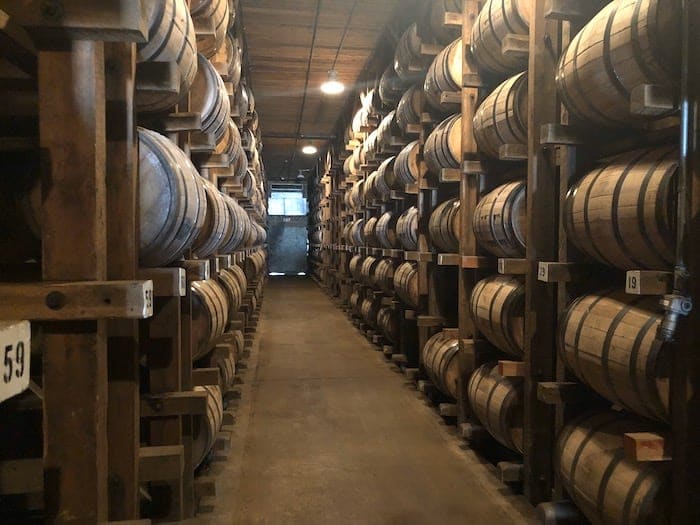
Austin: I think you’ll see innovations that are really relevant to the whiskey industry and whiskey enthusiasts, and what they like and are passionate about. I’m a whiskey enthusiast and so I think you’ll see more of this Bottled in Bond and this kind of liquid.
With the launch of Cascade Hollow Distilling Company, which makes George Dickel, this gives me a little bit of freedom to possibly also make whiskeys that are not George Dickel. So I’m doing a lot of kind of fun just side projects, too. But, of course, the nature of the whiskey industry is patience, and those will take a little bit of time before you’ll see them, but just get excited and know that I’m working on them. But in the short-term, I think you’ll see more for me around some of these really special liquids that are in our warehouses.

